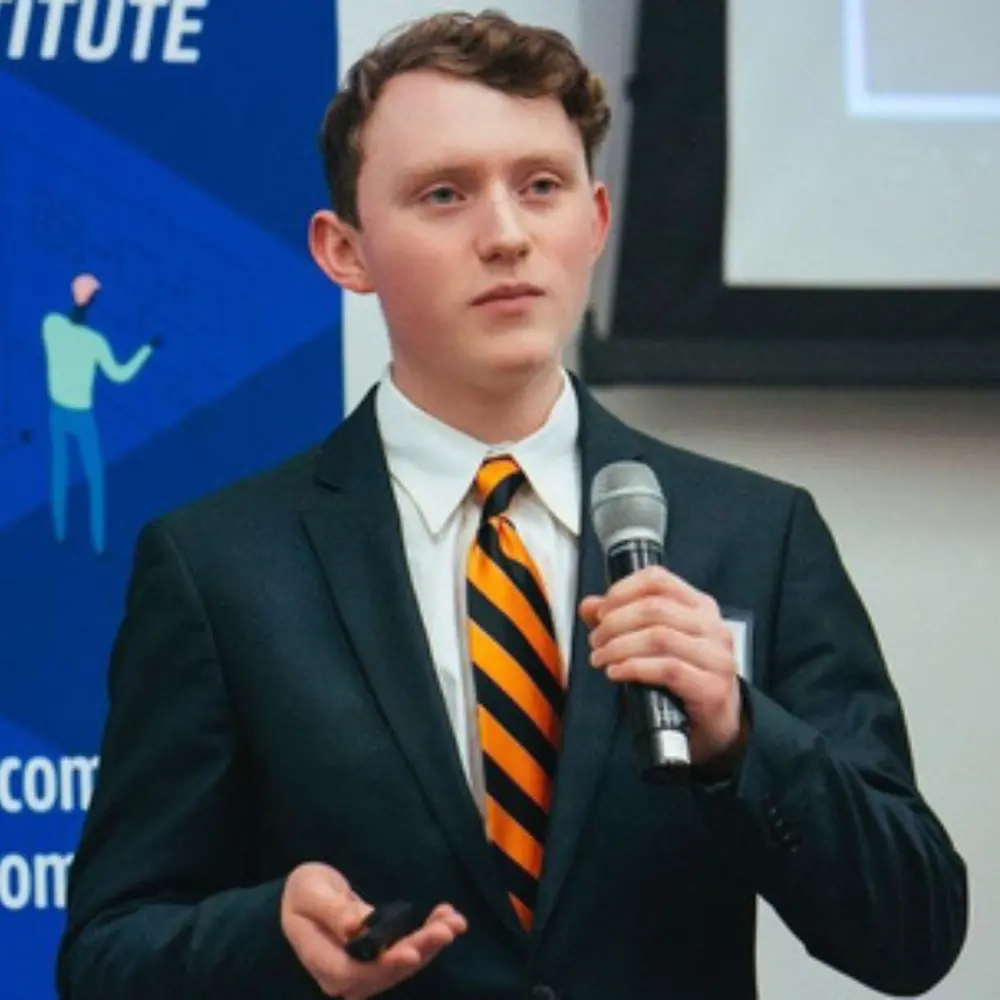
Three students at the University of Illinois Urbana-Champaign have been awarded David L. Boren Scholarships, including MCB major Brendan Rattin. The National Security Education Program selects students to add international and language components to their education by studying overseas in world regions critical to U.S. interests. In the 2022-23 academic year, Boren Scholars are slated to study in 29 countries throughout Africa, Asia, Central and Eastern Europe, Eurasia, Latin America and the Middle East, studying 21 different languages.
Rattin will study Mandarin and learn more about how Taiwan has tackled the COVID-19 pandemic at National Taiwan University. Rattin spent most of the pandemic conducting research in Professor Jie Chen's lab in the Department of Cell and Developmental Biology. He also served as a medical interpreter, leading the interpretation department at Avicenna Community Health Clinic. Additionally, Rattin is the creator of a mental health-based startup called Vrtumind, which provides free meditation content to students.
The School of MCB spoke with Rattin about his research interests and excitement about the opportunity to study abroad through the Boren Scholarship.
What are you most looking forward to on your travel abroad trip to Taiwan?
I am most looking forward to engaging with Taiwanese culture and learning Mandarin while I am abroad. I have friends from UIUC who are Taiwanese and they have shared restaurants and parks I should visit, so I am excited to have this opportunity.
How did you become interested in viruses, COVID monitoring, and studying Mandarin?
I have been interested in viruses for many years. However, it wasn’t until recently that I and the rest of the world was made aware of how disruptive they can be in our daily lives. In the MCB program, I have learned that viruses can have many negative impacts on human health. However, I also learned that there are researchers who study modified viruses in hopes to create cancer treatments.
While I’m abroad, I hope to gain a better understanding of how cultural differences can impact a population’s response to a viral outbreak, such as the SARS-CoV-2 pandemic. I am very excited to be studying Mandarin in a native environment. I have been fascinated in language since I was first exposed to Spanish in middle school, and I am learning Mandarin due to interest in the language, as well as for my career. I plan to facilitate collaboration efforts in the basic sciences between Mandarin-speaking regions of the world and the United States in the future, so that research can continue unabated. I believe that transparency in research is very important, especially in the wake of the SARS-CoV-2 pandemic.
What brought you to the University of Illinois and the MCB program?
I came to the University of Illinois because of the resources available. Early in my career as a student, I became involved with the startup community on campus and was fortunate enough to be part of the iVenture start up accelerator and work with the National Science Foundation’s Innovation Corps. to develop a mental health based application to help students. I also made sure to get involved with research early in my career at the University of Illinois and am currently part of the Jie Chen Laboratory on campus, where I have been privileged enough to lead my own research project that investigates the role proteins play in binding lipids.
Who inspires you?
I continue to be inspired by the members of the Jie Chen Lab, such as my mentor Adriana Reyes-Ordonez, and my peers at the University of Illinois who have shown resiliency and adaptability throughout the pandemic.
How do you think this experience will impact your future career goals?
One of the conditions for accepting the Boren Scholarship is committing to working for the federal government for one year, which I think will greatly affect my career goals. Before I hadn’t really thought about how biology could apply to national security, but seeing how devastating the coronavirus pandemic was, I made that connection. So being able to go abroad and gain a global perspective of what public health is and connecting that to a larger scale will be very helpful for my future career. This will also help me with the language component of my career goals because in the future I would like to facilitate research between China and the United States in the fields of molecular biology and public health.
NSEP is a federal initiative designed to build a broader and more qualified pool of U.S. citizens with foreign language and international skills. The Boren Awards provide U.S. undergraduate and graduate students with resources and encouragement to acquire language skills and experience in countries critical to the future security and stability of the nation. In exchange for funding, Boren Award recipients agree to work in the federal government for at least one year.